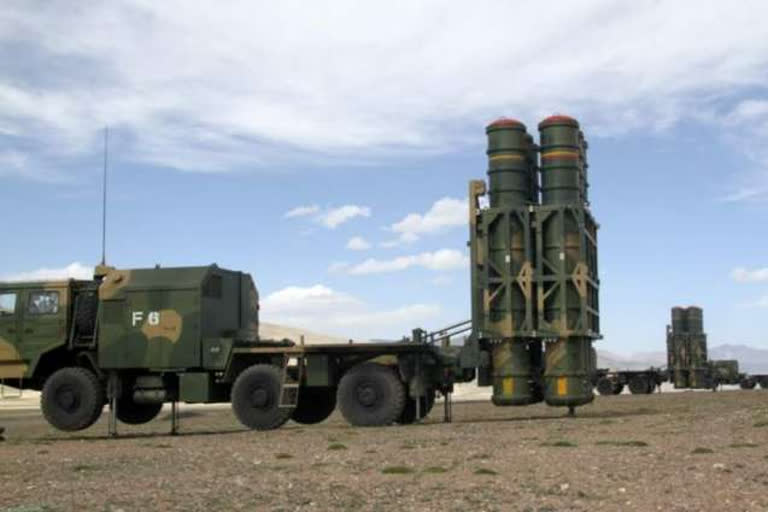Srinagar: When the whole world is grappling with COVID-19 outbreak, Pakistan has silently moved its strategic missile system closer to the Indian border. The decision, which experts believe, has been taken amid a surge in tension along the Line of Control (LoC) with India.
"From the satellite images, it is clearly visible that the enemy country has relocated its missile system much closer to the Indian border. Pakistan's LY-80 strategic missile system is now stationed at a base in Lahore city outskirts which is just 22.53 km away from India-Pakistan border," a senior Army officer told ETV Bharat, wishing anonymity.
He further said, "The relocation of the missile system created tension in our Army. Rather, we were a bit surprised as both the nations are right now dealing with COVID-19, how can they afford any activity at the border. We are already dealing with their unprovoked ceasefire violations and infiltration bids. We can expect anything from them."
The, Made in China, LY-80 or HQ16A is a medium-range missile system with the ability to engage aerial targets at high altitude and can intercept targets at a distance of 40km.
The missile, first used by Pakistan Army in March 2017, is also equipped with six firing containers locked in two rows of three, which can shoot at a speed in excess of 600 mph.
While Pakistan has still not issued any statement on the relocation of the missile system but Indian experts believe that the neighbouring country is trying to divert attention from the major issue - COVID-19.
Speaking to the ETV Bharat, a Defence Analyst and former Research and Analysis Wing (R&AW) senior officer JK Verma said, "Both India and Pakistan, like the whole world, are dealing with the coronavirus outbreak. Unlike India, Pakistan nationals are not following the preventive guidelines religiously. They are not following social distancing and other important precautions."
"Pakistan is trying to cover up and divert the attention of the world to the tensions between the countries rather than how they are failing to counter the spread of COVID19. In India, there are no congregational prayers in Mosques, Temples, Churches or Gurudwaras but in Pakistan, everything is happening. Nobody is listening to their government. This shows how weak their administration is," he said, adding, "Pakistan can never think of war with India because they know they can't defeat India in a conventional war. India's military strength is much more than that of Pakistan."
According to recent official estimates, India has a 1.4 million ground forces, supported by more than 3,565 battle tanks, 3,100 infantry fighting vehicles, 336 armoured personnel carriers and 9,719 pieces of artillery. While Pakistan's Army comprises 654,000 troops backed by 2,496 tanks, 1,605 armoured personnel carriers, and 4,472 artillery guns, including 375 self-propelled howitzers.
Read: Around 300 terrorists waiting in PoK for intrusion; Army re-calibrates counter-infiltration grid
Interestingly, the Indian Army too has an immediate requirement for 800 launchers and over 5000 missiles to man its 15,200 km long border.
"In February, this year, we were about to sign a multi-billion-dollar deal for Russian made Igla-S man-portable air defence missile system (MANPADS) but following the COVID19 outbreak and disagreement in one of the clauses in the pact the project has been shelved for some time," a senior Army official told ETV Bharat.
He said, "By shelving doesn't mean we have cancelled the project. We will retake and new negotiations will happen. Igla-S is the best we can have right now."
The Igla-S man-portable air defence missile system is meant to counter low-flying aircraft as the last line of defence against flying objects in a multi-layered air defence system.
"Pakistan's decision to move missiles closer to India can further surge the tensions along the border which are already violent following the abrogation of Jammu and Kashmir's special status," the official said
According to the official data with the defence ministry, there were a total of 646 incidents of ceasefire violations along the India-Pakistan International Border (IB) as well as the Line of Control (LoC) between January 1 and February 23 this year. In 2019, a total of 3,200 incidents of ceasefire violations from across the LoC has been reported compared to 1,629 incidents in 2018.
Also Read: Army busts underground hideout in Pulwama



